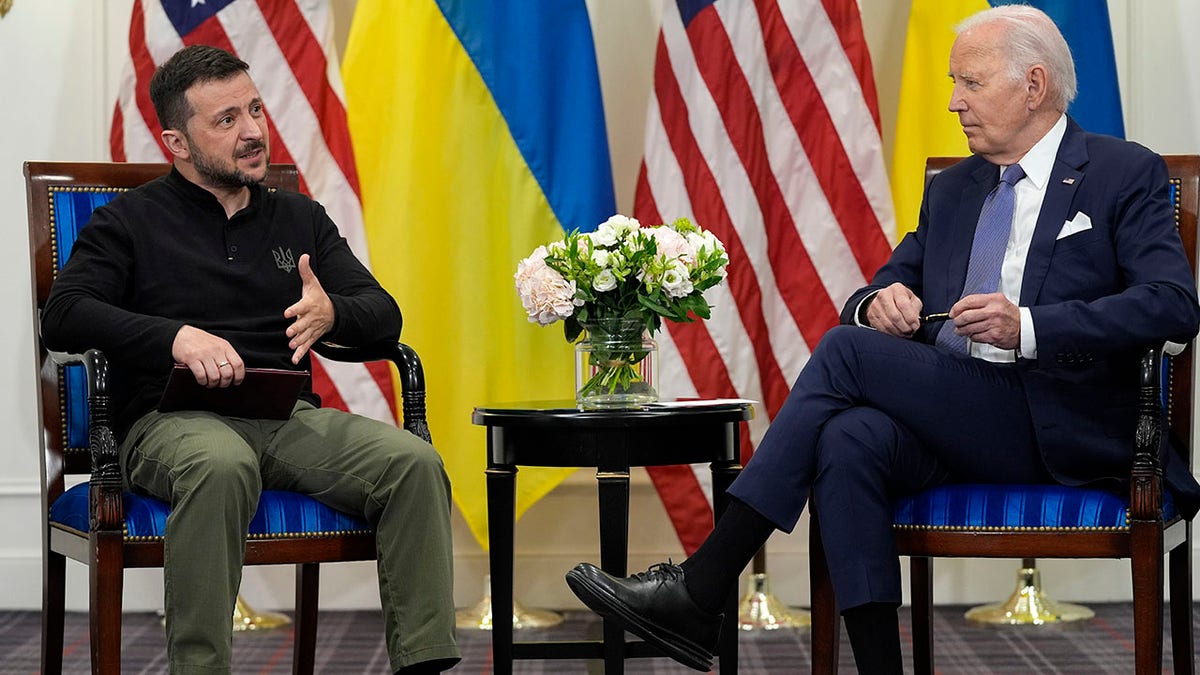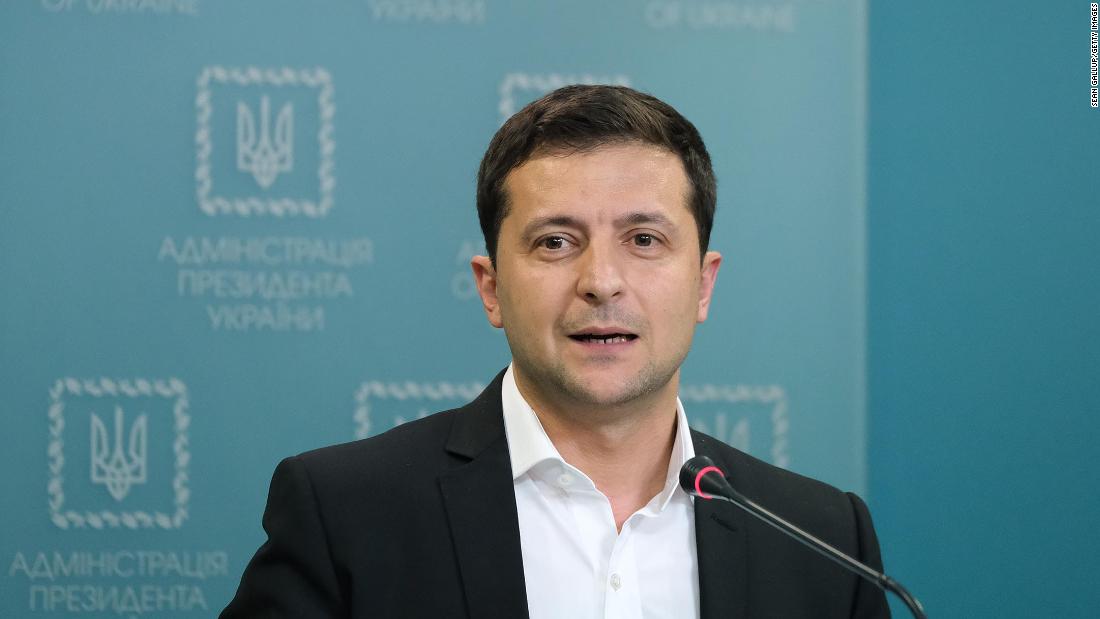The ongoing geopolitical tensions between Ukraine and Russia have taken center stage in global discussions, with energy policy emerging as a critical battleground. President Volodymyr Zelenskyy has been vocal in condemning Russian President Vladimir Putin's energy pledges, which he claims have failed to deliver on promises. This article delves into the implications of these failed energy promises, the impact on Ukraine and the global energy market, and the broader geopolitical ramifications.
As tensions between Ukraine and Russia continue to escalate, energy security has become a focal point of international concern. Zelenskyy's criticism of Putin's energy policies is not just a matter of domestic politics but a reflection of the broader struggle for energy independence in Eastern Europe.
This article will explore the background of the conflict, analyze the failed energy pledges, and examine the consequences for Ukraine, the European Union, and the global community. By understanding the dynamics at play, we can gain a clearer picture of the challenges ahead and the potential solutions.
Read also:Euro Symbol
Table of Contents
- Background of the Conflict
- Biography of Volodymyr Zelenskyy
- Putin's Energy Pledge
- Zelenskyy's Criticism
- Impact on the Global Energy Market
- Implications for the European Union
- Ukraine's Quest for Energy Independence
- Geopolitical Ramifications
- Future Outlook
- Conclusion
Background of the Conflict
The roots of the conflict between Ukraine and Russia stretch back decades, with energy playing a pivotal role. Since the dissolution of the Soviet Union, Ukraine has been reliant on Russian natural gas supplies, creating a dependency that has been exploited politically. In recent years, tensions have escalated, particularly following Russia's annexation of Crimea in 2014.
Key Historical Events
- 2014: Russia annexes Crimea, leading to international condemnation and sanctions.
- 2015: The Minsk Agreement is signed, aiming to bring peace to the Donbas region.
- 2022: Russia launches a full-scale invasion of Ukraine, intensifying the energy crisis.
These events have set the stage for a complex geopolitical landscape, where energy is both a weapon and a tool for negotiation.
Biography of Volodymyr Zelenskyy
Volodymyr Zelenskyy, the President of Ukraine, rose to prominence as a comedian and actor before entering politics. His unexpected transition to the political arena has been marked by both challenges and triumphs.
Biographical Data
| Full Name | Volodymyr Oleksandrovych Zelenskyy |
|---|---|
| Date of Birth | January 25, 1978 |
| Place of Birth | Kryvyi Rih, Ukrainian SSR, Soviet Union |
| Profession | Actor, Comedian, Politician |
| Political Party | Servant of the People |
Zelenskyy's background as an entertainer has shaped his unique leadership style, emphasizing transparency and direct communication with the Ukrainian people.
Putin's Energy Pledge
Vladimir Putin's energy pledges have been a cornerstone of Russia's foreign policy, aimed at maintaining influence over neighboring countries. These pledges often involve promises of discounted energy supplies or infrastructure development. However, critics argue that these promises are often not fulfilled or come with strings attached.
Examples of Unfulfilled Promises
- Delayed construction of energy infrastructure in allied nations.
- Unstable supply of natural gas during critical winter months.
- Increased prices despite initial commitments to lower costs.
These failures have contributed to growing skepticism about Russia's intentions and reliability as an energy partner.
Read also:Eva Green Daughter
Zelenskyy's Criticism
Volodymyr Zelenskyy has been a vocal critic of Putin's energy policies, emphasizing the negative impact on Ukraine's economy and security. His criticism is rooted in the belief that Russia's energy pledges are designed to maintain control rather than foster genuine cooperation.
Key Points of Criticism
- Energy dependency undermines Ukraine's sovereignty.
- Russia's actions destabilize regional energy markets.
- Unfulfilled promises reflect a lack of commitment to partnership.
Zelenskyy's stance has resonated with many Ukrainians and international allies, highlighting the need for alternative energy solutions.
Impact on the Global Energy Market
The failure of Putin's energy pledges has had far-reaching consequences for the global energy market. European countries, in particular, have been forced to reevaluate their energy strategies and seek alternative suppliers.
Key Effects
- Increased investment in renewable energy sources.
- Exploration of new partnerships with non-Russian suppliers.
- Heightened awareness of energy security as a strategic priority.
These developments underscore the importance of diversifying energy sources to ensure stability and resilience in the face of geopolitical uncertainties.
Implications for the European Union
The European Union has been directly affected by the failure of Putin's energy pledges, prompting a reevaluation of its energy policy. EU leaders have recognized the need to reduce dependency on Russian energy supplies and accelerate the transition to sustainable energy sources.
EU Initiatives
- Increased funding for renewable energy projects.
- Enhanced cooperation with non-Russian energy suppliers.
- Development of infrastructure to support energy independence.
These initiatives reflect a broader commitment to energy security and sustainability, driven by the lessons learned from the Ukraine-Russia conflict.
Ukraine's Quest for Energy Independence
Ukraine's quest for energy independence is a critical component of its national security strategy. Under Zelenskyy's leadership, the country has taken significant steps to reduce its reliance on Russian energy supplies and develop alternative sources.
Strategies for Independence
- Investment in domestic energy production, including renewables.
- Development of infrastructure to facilitate energy imports from Europe.
- Implementation of energy efficiency measures to reduce consumption.
These efforts demonstrate Ukraine's determination to break free from the cycle of dependency and build a more sustainable energy future.
Geopolitical Ramifications
The failure of Putin's energy pledges has significant geopolitical ramifications, affecting not only Ukraine and Russia but also their allies and adversaries. The conflict has reshaped alliances and prompted a reevaluation of traditional power dynamics in the region.
Key Ramifications
- Strengthened ties between Ukraine and Western nations.
- Increased scrutiny of Russia's role in global energy markets.
- Shifts in regional power balances as countries align themselves with either side.
These changes highlight the evolving nature of international relations in the face of energy-related challenges.
Future Outlook
Looking ahead, the future of energy policy in Ukraine and the broader region remains uncertain. However, there are reasons for optimism. The push for energy independence, coupled with advancements in renewable energy technology, offers a path toward a more stable and sustainable future.
Potential Developments
- Increased adoption of renewable energy sources in Ukraine and Europe.
- Development of new energy partnerships and alliances.
- Continued innovation in energy efficiency and conservation.
By embracing these opportunities, Ukraine and its allies can mitigate the risks posed by energy dependency and build a more resilient energy infrastructure.
Conclusion
The failure of Putin's energy pledges has had profound implications for Ukraine, the European Union, and the global energy market. President Zelenskyy's criticism has brought attention to the vulnerabilities created by energy dependency and highlighted the need for alternative solutions.
We invite you to share your thoughts and insights in the comments section below. Additionally, feel free to explore other articles on our site for further reading on global energy trends and geopolitical developments. Together, we can foster a deeper understanding of the challenges and opportunities ahead.
Data and references for this article were drawn from reputable sources, including government reports, academic studies, and news outlets such as BBC, Reuters, and The Economist. For further reading, we recommend exploring these resources to gain a comprehensive perspective on the topic.


